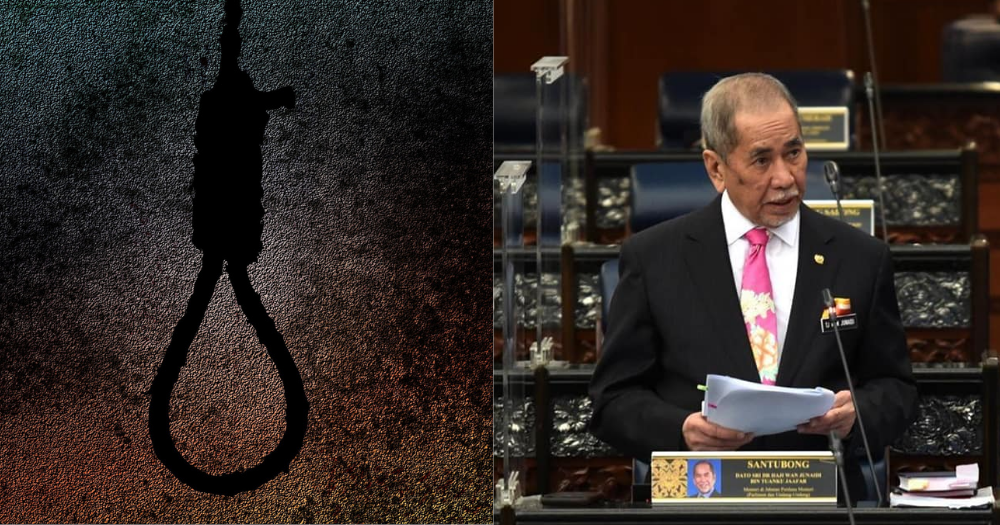Follow us on Telegram for the latest updates: https://t.me/mothershipsg
A special committee in Malaysia looking into the proposal to abolish the death penalty will submit its findings to the country's Minister in the Prime Minister's Department (Parliament and Law), Wan Junaidi Tuanku Jaafar, according to a press statement on Dec. 29.
The statement added that once submitted, Wan Junaidi will then present the committee's findings to Malaysia's Cabinet.
The Bill to amend laws on the death penalty, and other relevant laws, is expected to be tabled in Malaysia's parliament by the third quarter of 2022.
Death penalty would be abolished for 32 offences in 2018
In 2018, the Malaysian Cabinet decided that the death penalty will be abolished for 32 offences under eight acts of law.
Some of the offences include those under the Firearms Act 1960, Kidnapping Act 1961 and Dangerous Drugs Act 1952.
Malay Mail reported that in August 2019, the Pakatan Harapan (PH) government set up a special committee to review alternative punishments to the death penalty.
However, before the Bill could be tabled in parliament in March 2020, the PH government collapsed in February the same year.
Findings also evaluate capital punishment as deterrence
Wan Junaidi said in the statement that the committee was established in 2019 to "gauge the public's response to the proposal as well as examine the ramifications of such a decision".
The statement added that the committee was tasked to look at the issue of the death penalty from several aspects, taking into consideration the views of the various stakeholders.
One critical remit, the statement added, was evaluating the effectiveness of capital punishment as a deterrent.
"There have been repeated calls to abolish the death penalty," Wan Junaidi said in the statement.
He added that as a minister, his role was to assess the effectiveness of these punishments as a deterrence.
"We must study this thoroughly before we come to a decision," he said.
Government to evaluate rehabilitation as a better option
Beyond capital punishment, Wan Junaidi said the government also needed to see if the rehabilitation of convicts, if possible, would be the better option, and in the best interests of the greater society.
"If they have done their time, paid their dues, show genuine remorse for what they have done and have been completely rehabilitated, we should not close the door on them," he said in the statement.
Furthermore, he said that the study was consistent with the Malaysian government's aspirations to rehabilitate criminals and assimilate them back into their respective communities as valuable members of society.
Follow and listen to our podcast here
Top image via kalhh/Pixabay and Wan Junaidi/Facebook
If you like what you read, follow us on Facebook, Instagram, Twitter and Telegram to get the latest updates.
